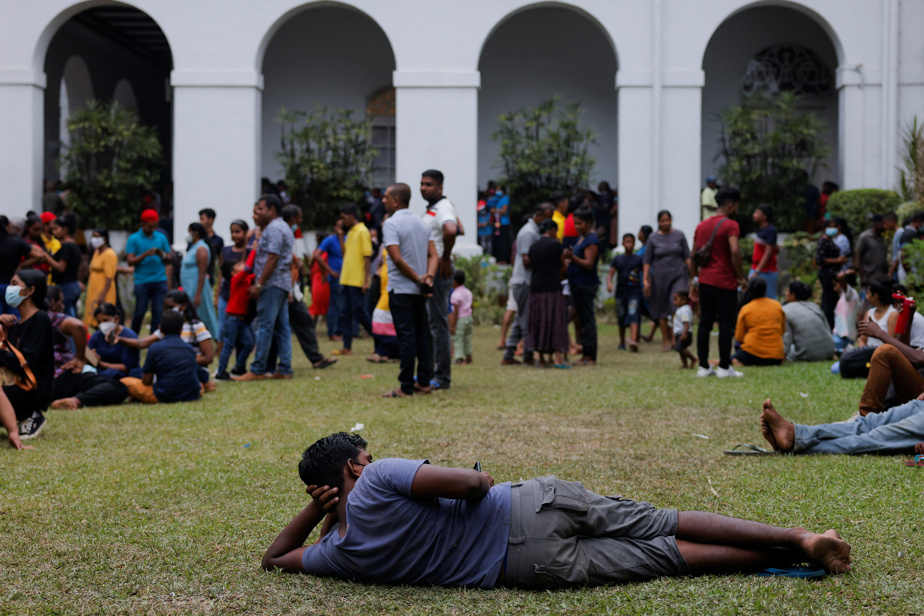(Colombo) Protesters who chased Sri Lankan president from his palace in Colombo on Sunday intended to continue occupying the building until he resigns next Wednesday, he promised.
Updated yesterday at 12:56 PM.
“Our struggle is far from over,” explained Lahiru Werasekara, one of the student leaders in the movement. “We are not going to give up until he is really gone,” he told reporters.
In the evening, a mannequin bearing a portrait of President Gotabaya Rajapaksa was hung on the balcony of the clock tower, to the applause of a large crowd near the presidential residence.
The head of state, a refugee on board a military ship and on his way to a military base in the northeast of the island, on Saturday evening, at the end of a day celebrated by many coup protesters, announced that he was ready to resign … on Wednesday, July 13.
Hundreds of thousands gathered in the official housing district, Saturday, to express their anger at the unprecedented economic crisis in the country, for which they consider the president partially responsible.
Several hundred of them managed to storm the palace, climbing up to the gates while the guards struggled to keep them away long enough to remove the chief.
The prime minister’s home was set on fire in the evening, and three suspects were arrested on Sunday, according to police.
These events are the culmination of sustained and sometimes violent demonstrations in recent months in the face of food, medicine and energy shortages plaguing the country, which residents largely blame on the incompetence and corruption of the Rajapaksa clan. Brothers who have shared power for more than fifteen years.
In this formerly middle-income country, three-quarters of the population are now reducing their diet, according to the United Nations, which warned Sunday of the risk of a serious humanitarian crisis.
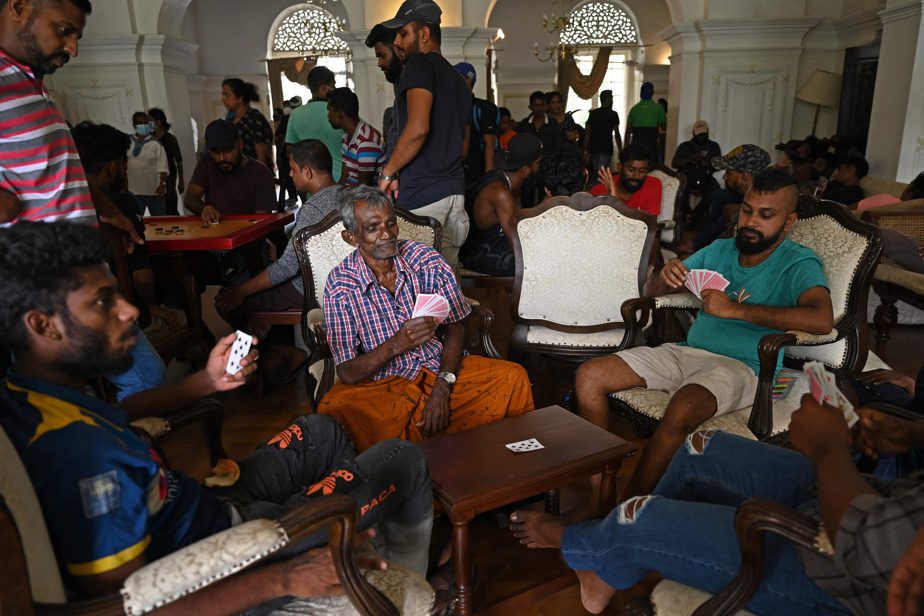
Photo by Arun Sankar, AFP
The men play cards in the prime minister’s house.
Picnics and a presidential chair
But the mood prevailed on Sunday for the joyous demonstrators. The joy of victory as the president promised to leave office. But also the most immediate pleasure to enjoy the luxury for a few hours and is usually reserved for the leaders of the state.
Because they occupy not only the Presidential Palace, but also the Palace of the Prime Minister and the offices of these two leaders.
And on Sunday mornings, you can see the crowd quietly strolling through all these buildings, taking advantage of the soft-armed chairs or queuing to take turns sitting in the chair, admiring the artwork, trying the grand piano, or enjoying the air conditioning.
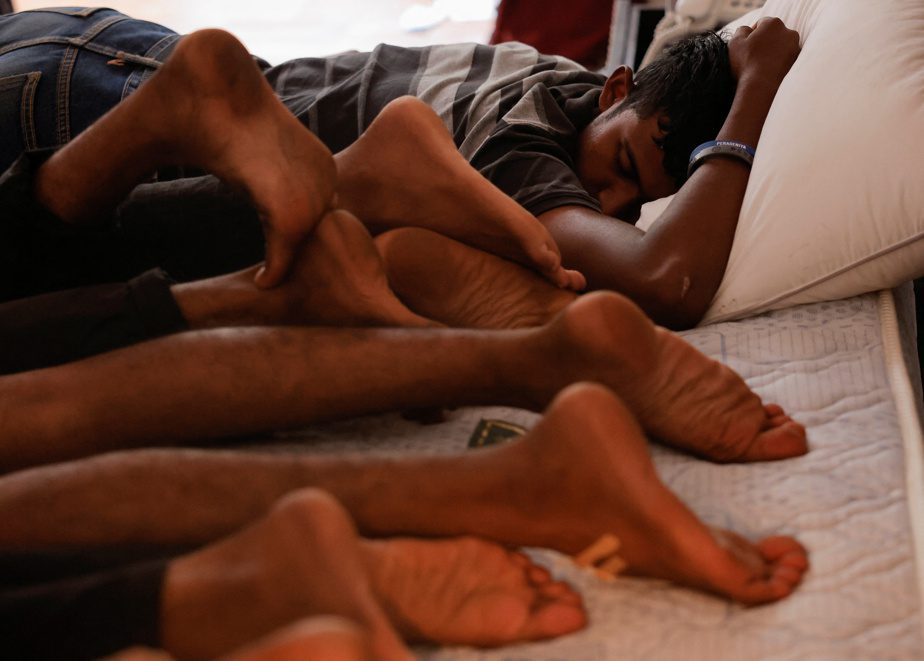
Photo by Dinuka Lyanawat, Reuters
The demonstrators spent the night in the presidential palace.
“When leaders live in such luxury, they obviously don’t know how ordinary people live,” Buddhist monk Sri Sumida told AFP.
“All of this shows what can be done when people decide to exercise their power,” he added, referring to the crowd around him.
Outside, some took advantage of the swimming pool on Saturdays and Sundays in the garden of this former residence of the British colonial ruler of Ceylon, as in the prime minister’s home, families all strolled. Above the place, makeshift kitchens appeared here and there.
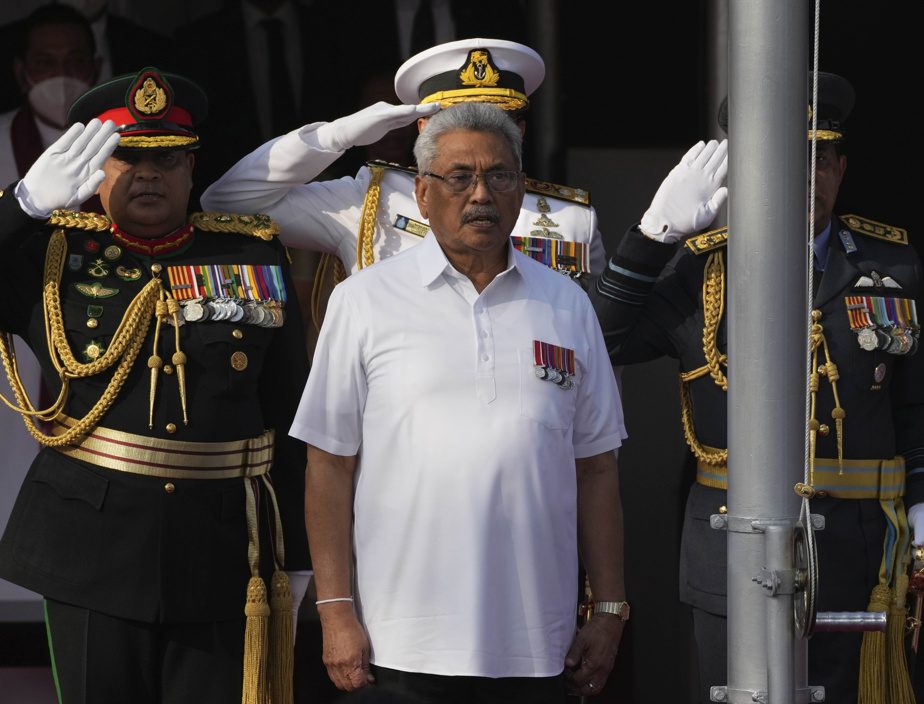
PHOTO ERANGA JAYAWARDENA, Participating Press Archives
President Gotabaya Rajapaksa
Wait and hurry
The political situation remains uncertain. If the president resigns as promised on July 13, Parliament will have one month, by law, to elect a replacement.
Very long delay due to the crisis situation in the country. The Speaker of the House of Representatives also confirmed that the House of Representatives will assign the new president within a week. However, no candidate appears to have received a majority of the vote at this time.
All officials, both in Sri Lanka and abroad, hope to see the political crisis resolved as soon as possible so that the country can address the economic catastrophe caused in large part by the loss of tourism revenue in the wake of the attack. Covid-19 epidemic.
The country, which defaulted on its debt in April, is currently in negotiations with the International Monetary Fund, which said on Sunday it hoped for a “quick settlement” of the situation to allow “the resumption of our dialogue”.
The Chief of Staff called for calm, stressing that it is possible to “resolve the crisis peacefully and constitutionally.”
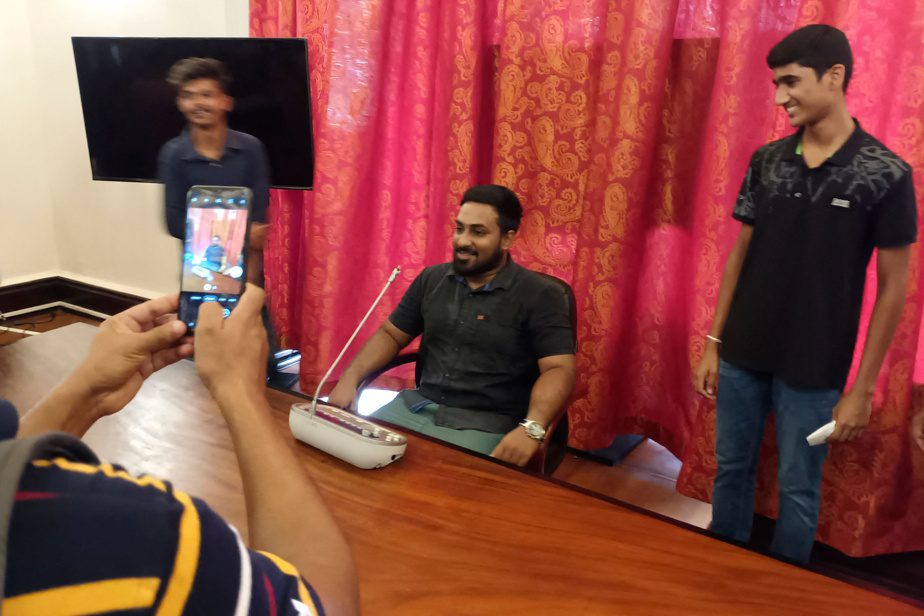
Photo by Amal Jayasingh, AFP
A man sitting at the desk of President Gotabaya Rajapaksa
On Sunday, US Secretary of State Anthony Blinken called on Parliament to “resolve this situation for the good of the country, and not for the benefit of a political party.”
He said the future government would “work quickly to identify problems and find solutions in order to restore economic stability,” adding that these solutions should respond to “the discontent of the people, who are strong and tangible, as economic conditions deteriorate.”

“Extreme twitteraholic. Passionate travel nerd. Hardcore zombie trailblazer. Web fanatic. Evil bacon geek.”

